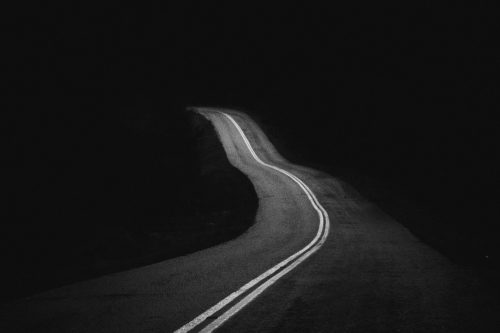You never know you’re about to crash. Until it’s too late.
Earlier this month: I was driving the slushy interstate between Seattle and Montana. A young man attempted to pass on my left. But he lost control of his speeding vehicle. That’s when the terror set in. Everything happened in slow motion. The air felt like Jell-O. Gravity seemed suspended as the man’s car hydroplaned sideways into my lane.
And then: crash! My bumper collided with his passenger side. The high-speed impact forced us both toward the shoulder’s steep decline.
“Everything’s okay! Everything’s okay! Everything’s going to be okay!” I attempted to convince Mariah, the woman in my passenger seat. We slid off the road. Then inertia forced both vehicles forward. Our car began to roll.
Everything was perfectly fine just a few seconds before: after spending a few days skiing in Canada, Mariah and I were driving back to Montana—smiling, laughing, singing off-key renditions of 80s songs. But just a moment later everything had changed. Our car flipped. Mariah and I tumbled toward the ravine. (Here’s a post-crash photo.)
Thankfully, other than a few bruises, sore muscles, and potential whiplash, we are all right. Most important, we’re alive. Had we not been wearing our safety belts, though, you’d be reading my obituary.
My life didn’t flash before my eyes during this near-death experience, but I did have a revelation as time slowed—a revelation I didn’t expect: If I die today, I’ve lived an outstanding life. I’ve done nearly everything I’d like to do with my time here on earth.
I couldn’t have said this two years ago. But now I can, which means the rest of my post-crash life is bonus time. And the key is to determine how to best spend my bonus years.
The fact is that any of us could die today. Right now. So everything after this moment is a gift. How can we best spend our bonus time, then? By shopping or browsing Facebook? By working hard for a paycheck to buy shit that won’t make us happy? Or maybe by living more deliberately, focused on the people around us? Maybe by creating more and consuming less?
The good news is that these bonus hours are ours. We get to decide.
Read this essay and 150 others in our new book, Essential.

